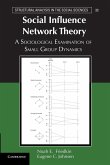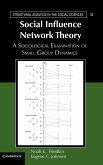The study of emotional expressions has a long tradition in psychology. Although research in this domain has extensively studied the social context factors that influence the expresser's facial display, the perceiver was considered passive. This 2007 book focuses on more recent developments that show that the perceiver is also subject to the same social rules and norms that guide the expresser's behavior and that knowledge of relevant emotion norms can influence how emotional expressions shown by members of different groups are perceived and interpreted. Factors such as ethnic-group membership, gender and relative status all influence not only emotional expressions but also the interpretation of emotional expressions shown by members of different groups. Specifically, the research presented asks the question of whether and why the same expressions shown by men or women, members of different ethnic groups, or individuals high and low in status are interpreted differently.
Hinweis: Dieser Artikel kann nur an eine deutsche Lieferadresse ausgeliefert werden.
Hinweis: Dieser Artikel kann nur an eine deutsche Lieferadresse ausgeliefert werden.








